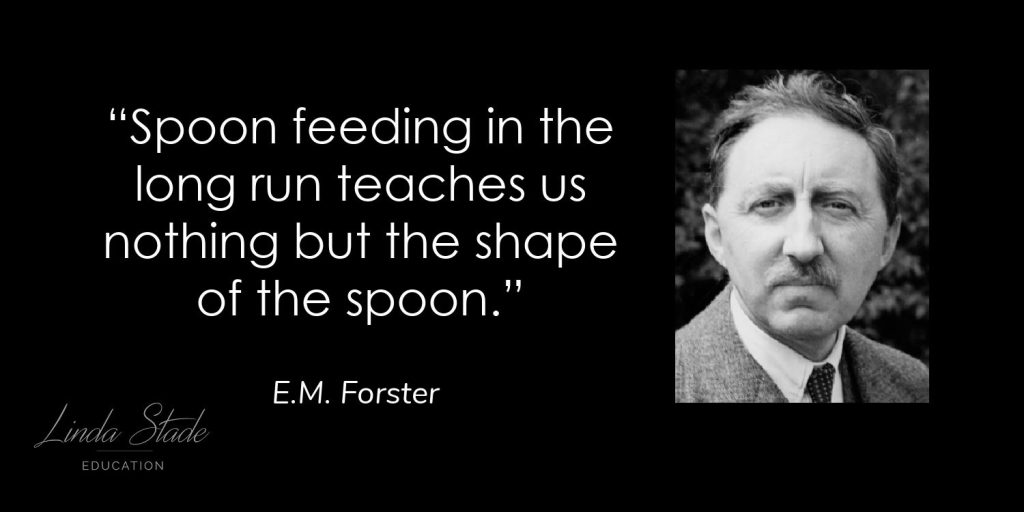Recently, I did an art workshop. It was an unusual decision given that I have very little experience or talent. In fact, I’m an absolute beginner. When I sat down to my blank canvas the challenge mocked me and I felt discomfort and frustration. I remembered what it was like to be at school.
At school, if teachers are getting it right, kids are often challenged. They struggle and feel frustrated. It feels uncomfortable, however, it’s from this position that great learning can begin.
What is Deep Learning?
Deep learning, in its most effective form, is a mucky business. It isn’t about getting notes from the teacher, learning them by rote and then passing a test. It’s about working through a state of confusion and frustration. It’s about employing the expert teachers and resources at your disposal, and persevering despite initial failures.
In deep learning we have to build new neural pathways and then practise and practise and practise. In time, we emerge with a new skill, be it a language, a mathematics concept or the ability to create art.
Deep learning is also about accepting that struggle and frustration are important and embracing that fact. Great teachers purposely challenge students with problems that will cause some frustration. They offer opportunities for deep thinking, reasoning and problem-solving. Unfortunately, these teachers are often criticised by students and parents because it is easier to blame the teacher than to wrestle with challenges.
Overcoming frustration is a key skill that we can use again and again throughout life. Unfortunately, many students, young and old, give up well before they come to this understanding. When we reject struggle, we also reject the opportunity for triumph and jubilation.
Very early in life, we decide what we are good at and what we are not. We even label ourselves as; a maths person, a humanities person or maybe a hands-on person. Once we make that decision, or that decision is made for us, we tend to go with it. In fact, we are probably wrong. Research shows that most people can learn anything.
We may not become an expert, but we can learn anything.
Overcoming frustration with schoolwork
When students begin to learn a new skill, often they are not good at it. Not being good at something feels uncomfortable. Their efforts aren’t being rewarded and that makes it hard to persist. This frustration has to be worked through. If a student learns to just give up, it can be a huge barrier to new experiences in life. School is the perfect environment to learn to deal with frustration because all the resources to help a child are readily available.
It is interesting that it is often high-achieving students who struggle most with the process of working through frustration. These students tend to have a history of success that has come easily. They are not used to hurdles. Average students can sometimes be more resilient in their learning because they have had to wrestle with frustration on and off throughout their school lives.
Scott H Young writes hundreds of articles about soft skills, and particularly working through frustration. He says there is a process students need to go through when they begin to learn a new skill or subject:
In summary, he says:
1. Admit you are a novice for the moment but believe that will change
2. Surround yourself with people who are good at the skill or subject
3. Study the skill by watching, listening, and trying
4. Ask questions. Lots of questions
5. Get used to the feeling of being challenged
6. Practise and practise and practise
7. If you start to get overwhelmed have a break and then come back to it
8. Look at your mistakes and learn from them
Finally…Celebrate not giving up and busting through the frustration barrier.
At Santa Maria College in Perth, they have an extended learning program called Strive9. It is a group project where students have to work together to create a positive change in the lives of others in the community. It is student-led and there is very little interference from staff.
The students have to work together over the course of several months, plan, engage with the wider community, seek help from experts and eventually execute their plan. There are often conflicting ideas and personalities, large hurdles and real-life problems to be solved. It’s frustrating.
The students resent Strive9, right up to the point when their plan comes together and they achieve their goals. Then they love it. Deep learning like this makes kids feel jubilant. They have overcome frustration and difficulties and they have delivered. That sort of learning stays with you.
How can parents and teachers support kids in overcoming frustration?
- Praise the process of overcoming frustration
- Don’t praise talent or intelligence, praise what is achieved with talent and intelligence
- Teach children that neurons in the brain form stronger connections with practise. Research shows that just knowing that fact improves performance. It is especially effective in kids who struggle with learning.
- Make sure kids have seen and understand this graphic or one like it

- Some students believe they are born incapable of certain subjects. Parents reinforce this belief when they say things like, “I wasn’t good at Maths either.” It is said with all the best intentions, but it doesn’t help with learning. Instead, talk to them about the fact that it is difficult and frustrating now, but it will become less so.
- Support teachers who challenge children. They are not doing it to be mean. They are providing skills your child will need beyond school. Nobody ever became a life-long learner by getting notes from the teacher and learning them for a test.
This article was written by Linda Stade. © Santa Maria College: All rights reserved







